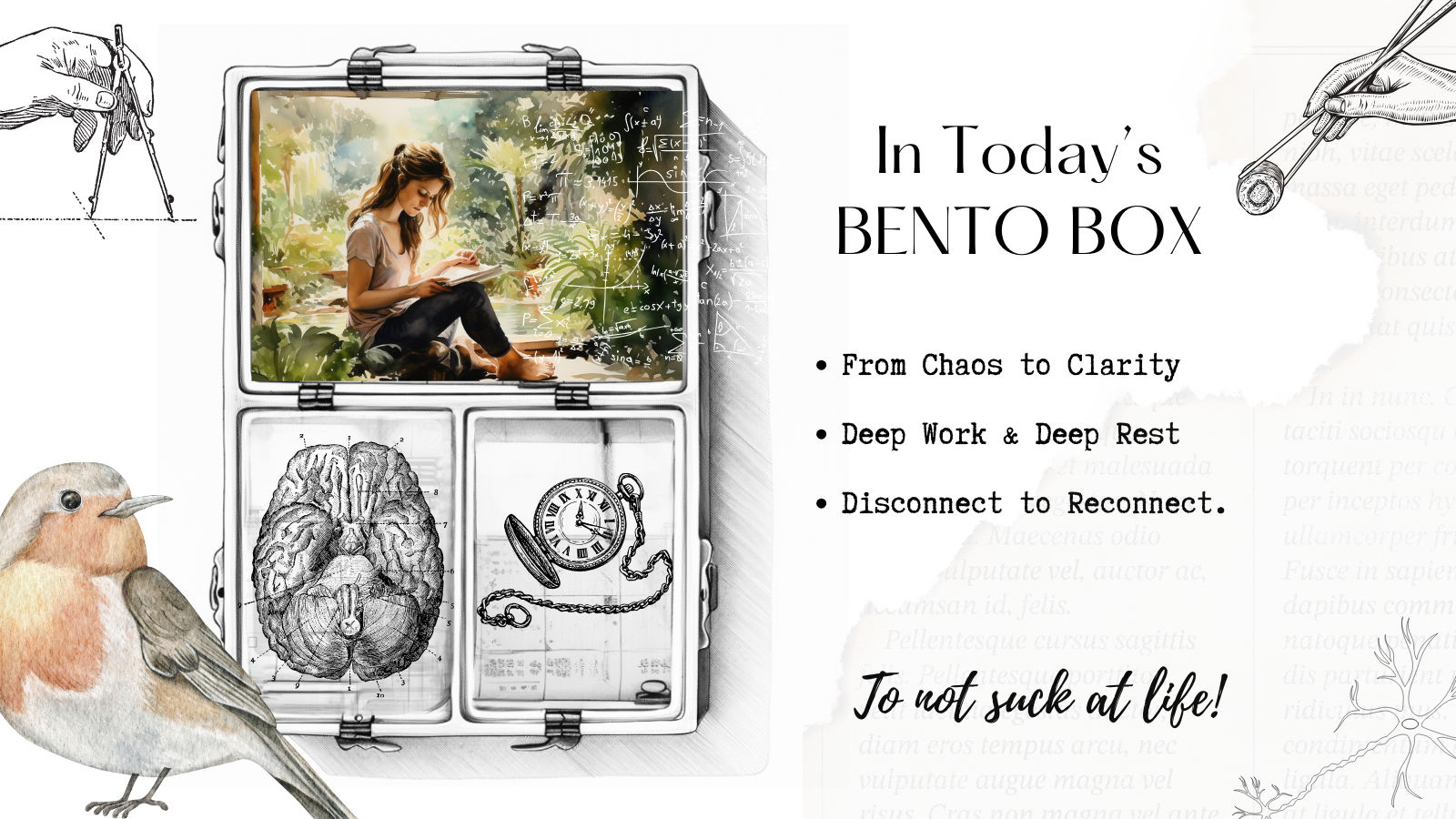Are You hooked on information?
When was the last time you walked without distraction? Watched a movie without your phone? Used the bathroom without scrolling?
Can’t quite remember?
Then let’s talk about Information Overload and information addiction.
I get it. I’m an addict too. Not the bad kind, maybe – my drug is knowledge.
My strengths are all about analyzing, learning, improving.
Great, right? Sort of.
But lately, I’ve wondered if it’s become a problem.
Am I really digesting ideas, or just drowning in them?
“The cost of a thing is the amount of what I will call life which is required to be exchanged for it, immediately or in the long run.”
― Henry David Thoreau, Walden
Herbert Simon said it best:
“A wealth of information creates a poverty of attention.”
I used to love poetry, fiction, but in the quest for self-betterment, I’ve replaced it almost entirely with something more ‘productive’ and ‘useful’.
I now have some 500 books on my Kindle, waiting for me to find enough mental bandwidth, while I also cram audiobooks, podcasts, and AI summaries into my ears and eyes.
Information Overload: Are You Consuming It, or Is It Consuming You?
All that “learning”, and I felt dumber every day.
That’s when I read Oliver Burkman‘s “Four Thousand Weeks: Embrace your limits. Change your life. Make your four thousand weeks count.”
And Brad Stulberg’s “The Practice of Groundedness: A Transformative Path to Success That Feeds–Not Crushes–Your Soul.”
And some more books on dopamine, addiction, and our craving mind, because hey, reading is what I do.
The struggle to keep up with everything?
Futile and pointless. I realized more data doesn’t make me smarter. It clouds my judgment, kills my creativity. I’m an info hoarder, drowning in shallow thought.
In today’s world, we kind of work, we kind of rest.
Changing my info diet was not necessarily easy.
That constant itch for MORE, even knowing it meant LESS. Our brains hate losing their dopamine fix. You can’t just think your way out of that. I had to retrain my overstimulated taste buds, tweak my habits and experience the change.
News stopped first. Headlines only now – and surprise, I still know what’s going on- minus some gruesome details that I can’t control anyway.
This month, I’m dialing it back even further. Podcasts can wait. I’m reading SLOWLY, doing less work in focused bursts.
Make Time for Rest
“One way to create space for rest is to structure our daily schedules around unbroken periods of focused work. Very creative people work in highly intensive daily bursts of four or five hours (divided into 90- to 120-minute periods, with short breaks)—and call it a day. You can be a lot more productive in a couple of focused hours than in a day full of distractions and notifications.”
–Pang, Alex Soojung-Kim. Rest: Why You Get More Done When You Work Less
Go Deep or Go Home.
I’m a fan of Deep Work, but if you think that is hard – try Deep Rest.
Deep rest is hard at first.
But then…new thoughts surface, focus returns, and you get a sense of control.
Maybe I’ll do less but somehow still get more done.
What you want to do it to make your own awesome club sandwich of intense work and deliberate rest.
That’s how many creative people work.
“Concentrating hard on a problem tempts their subconscious minds into working on it. But this requires time and space—by resting immediately after a period of focused work, you can give your subconscious mind time to discover solutions to problems that are eluding your conscious effort.”
That’s pretty much a recipe for ‘work smarter, not harder.”
This is how we create our OWN ideas in the age of AI.
It’s not even March, but this experiment’s sticking. In our crazy hustle world, a lean info diet and real rest feel revolutionary. Taste it yourself.
Real work, real joy, come from deep focus, not endless distraction.
The Shallows of Information Overload
I will leave you with this quote (via Tim Ferriss) from one of my fave authors, Steven Pressfied:
“The disease of our times is that we live on the surface. We’re like the Platte River, a mile wide and an inch deep. I always say, ‘If you want to become a billionaire, invent something that will allow people to indulge their own Resistance.’ Somebody did invent it. It’s called the Internet. Social media.
That wonderland where we can flit from one superficial, jerkoff distraction to another, always remaining on the surface, never going deeper than an inch.
Real work and real satisfaction come from the opposite of what the web provides. They come from going deep into something—the book you’re writing, the album, the movie—and staying there for a long, long time.”
You made it to the end!
Thanks for your time. Go give your brain the downtime it deserves. I promise you it is not time wasted.
TRY:
- I now practice the “4 points of contact”.
- It’s a simple exercise to reconnect with your body and regulate your nervous system.
- All you need to do is to sit, close your eyes for a minute or so, and focus on 4 points in your body at the same time and the sensations in them.
- It’s best to do it every hour or as often as you can.
- Try it!


